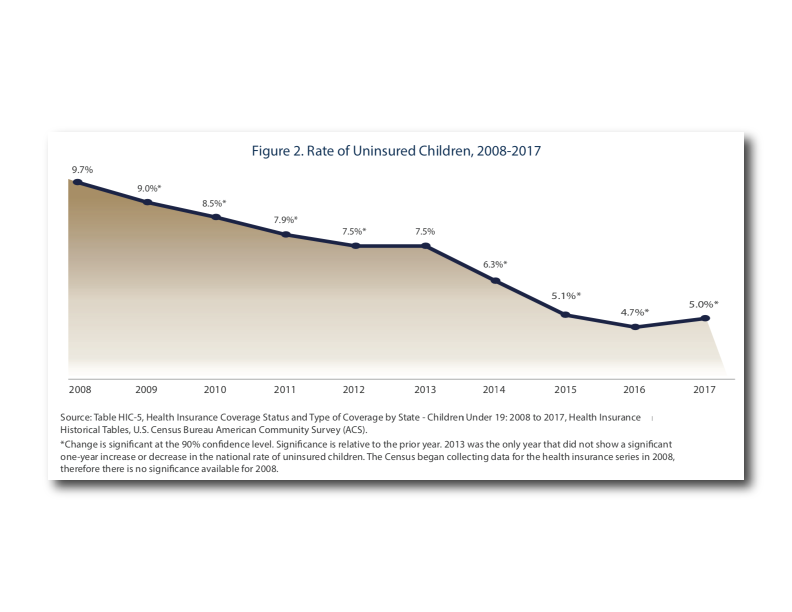Alabama
-
Medicaid’s Role in Small Towns and Rural Areas
Key Findings Background One-fifth of people in the United States live in areas that are classified as non-urban. Residents of rural areas and small towns face additional challenges accessing needed health services compared to residents of metro areas for a variety of reasons including acute provider shortages, limited connectivity, and long distances to travel to…
-
CMS Announces State Recipients of the Transforming Maternal Health (TMaH) Model
Last year, CMS announced a grant opportunity to boost state Medicaid agency efforts to improve maternal health in the United States. The Transforming Maternal Health (TMaH) Model seeks to help states develop a comprehensive approach to the perinatal period that addresses the whole person’s physical, mental health, and social needs that may be experienced during…
-
State Medicaid and CHIP Snapshots, 2023
The Georgetown University Center for Children and Families (CCF) and the American Academy of Pediatrics (AAP) created factsheets underscoring the importance of Medicaid in providing coverage for children in all 50 states and the District of Columbia. Sources available here. Previous snapshots can be found here (2019), here (2018) and here (2017). Check out more interactive…
-
Alabama’s Women Need Medicaid Expansion: One in Six Women Aged 18-44 Lack Health Coverage and Face Many Barriers to Good Health
Report by: Maggie Clark, Georgetown University CCF, & Debbie Smith, Alabama Arise Download Full Report Introduction Alabama mothers face many barriers to good health. The state faces high maternal and infant mortality rates, high rates of uninsurance among women of childbearing age, and worsening access to maternity care providers. These problems are compounded by Alabama’s…
-
Low-Wage Uninsured Workers: State Profiles
The recently enacted American Rescue Plan Act of 2021 (ARP) includes new large financial incentives for states to extend health insurance coverage to low-wage workers and other adults earning less than $17,775 a year. These incentives apply to regular spending in a state’s Medicaid program and offer a five-percentage point across the board increase in…
-
A Profile of Alabama’s Low-Wage Uninsured Workers
The recently enacted American Rescue Plan Act of 2021 (ARP) includes new large financial incentives for states to extend health insurance coverage to low-wage workers and other adults earning less than $17,775 a year.¹ These incentives apply to regular spending in a state’s Medicaid program and offer a five-percentage point across the board increase in the…
-
State Leaders Advance Infant and Early Childhood Mental Health Policy, Part 2
Four years after launching ZERO TO THREE’s Infant and Early Childhood Mental Health Financing Policy Project (IECMH-FPP), we have learned a lot about opportunities to advance infant and early childhood mental health policies, even amidst a tough political climate and funding limitations. In an effort to highlight the remarkable accomplishments of IECMH-FPP states, we recently…
-
States that Expanded Medicaid are Helping to Protect Children from Becoming Uninsured
Our annual report on the state of children’s coverage is out. It’s a deep dive into a disturbing trend – children across the country are losing affordable health coverage, rolling back gains started with the Affordable Care Act. One main cause of this drop in coverage is easily fixed. The 14 states that haven’t expanded…
-
Repealing the Medicaid Access Rule is Bad News for Children and Providers
On July 15, CMS proposed to repeal—but not replace—the Access Rule. Repeal of this important rule will leave children in Medicaid fee-for-service, as well as their providers, with no systematic assessment of their access to services and no procedural protections against arbitrary payment cuts. (This could be especially problematic in the event of a recession,…
-
2016 Maps
The interactive maps and data for 2016 provide information on the percent of adults and children covered by Medicaid and/or CHIP.You can embed these maps on your website by selecting a state on the left then copying the embed code on the right side of the map and pasting it into a post on your…
-
Nation’s Progress on Children’s Health Coverage Reverses Course
Introduction For the first time since comparable data was first collected in 2008, the nation’s steady progress in reducing the number of children without health insurance reversed course. The number of uninsured children under age 19 nationwide increased by an estimated 276,000 to about 3.9 million (3,925,000) in 2017, according to newly-available data from the…
-
Perry County to Tuscaloosa: A 70-Minute Drive for Rural Women Seeking Obstetrics Care
I have driven the 57 miles from Perry County, Alabama to Tuscaloosa many times, with long stretches of bumpy road that is marred by stop lights as you get closer to the city. All in all it’s about a 70-minute drive, a 70-minute drive residents of Perry County have to make if they need to…
-
One Month into Medicaid Work Requirement in Arkansas, Warning Lights are Already Flashing
Arkansas’s Department of Human Services released numbers on its work requirement to a select group of reporters and officials late last Friday, and we just saw them earlier this week. The numbers confirm reports of widespread confusion over the work requirement’s rollout and exacerbate our fears that red tape will eventually lead to significant coverage…
-
Payer Roundup—CMS takes $168M cut in House funding bill; ACA lawsuit could impact employer coverage
Fierce Healthcare By: Mike Stankiewicz and Evan Sweeney The House Appropriations Committee hasn’t changed its tune much from last year regarding Medicare and Medicaid funding. … In total, the Alabama Medicaid Agency received about 800 public comments on its proposed work requirements for able-bodied parents; 90% were in opposition to the policy, as reported by Al.com. Researchers at the Georgetown…
-
State Medicaid and CHIP Snapshots, 2018
The Georgetown University Center for Children and Families (CCF) and the American Academy of Pediatrics (AAP) created factsheets underscoring the importance of Medicaid in providing coverage for children in all 51 states (including the District of Columbia). Sources are available here. Previous snapshots can be found here.
-
Alabama Mothers and Children Will Bear the Brunt of Proposed Medicaid Restrictions
As regular readers of SayAhhh! know, on January 11th CMS released guidance announcing its interest in approving state proposals to impose work requirements on Medicaid beneficiaries. Since then CMS has approved three waivers to do so (along with other important and harmful changes such as lockouts which we are not talking about today) – Kentucky,…
-
The Impact of Alabama’s Proposed Medicaid Work Requirement on Low-Income Families with Children
(Updated August 23, 2018) What is Alabama proposing to do? Alabama is seeking federal permission through a Section 1115 Medicaid demonstration waiver to require parents and caregivers who rely on Medicaid to work 20 to 35 hours a week, prove they are looking or training for a job or do community service before receiving Medicaid.…
-
Proposed Medicaid Work Requirement: Impact on Alabama’s Low-Income Families with Children
Alabama’s plan to impose a work requirement on parents receiving Medicaid could cost as many as 8,700 people their health coverage in the first year alone, affecting mainly mothers whose children also would feel the impact, according to a new analysis by the Georgetown University Center for Children and Families and Arise Citizens’ Policy Project.…
-
Short-Term Fix is Not Enough to Reassure Children and Families CHIP is Secure
Congress created a crisis when it failed to meet the deadline to extend CHIP funding on September 30, and they have been kicking the can down the road ever since. Their neglect has left states trying to hold their CHIP programs together as best they can under very difficult circumstances, while holding out hope that…
-
Senator-Elect Doug Jones Calls on Senate to Pass CHIP Funding
Jim Carnes is the Policy Director of the Arise Citizens’ Policy Project. Alabama voters are accustomed to the hot glare of national media attention, but not the warm glow. Doug Jones’ stunning upset victory over Roy Moore for Jeff Sessions’ U. S. Senate seat has cast our state in the most favorable light many of us…


















